
Aaron Roth – Edify.org – “A Culture of Value” – June 2013
Hi family and friends, I had an excellent two weeks back in Nicaragua and Guatemala doing some follow-up research on small, low-cost Christian schools for Edify. I was also able to help with a project with starting savings groups in local churches for HOPE International in those areas as well. I’ll be in the States for about two weeks before heading to the Dominican Republic to work with some family camps for Edify. We are going to be working with a few small Christian schools in the Dominican Republic with a few churches and families from the United States. This newsletter is about my experience in Guatemala, a country I have really grown to love over the past three years. Blessings, -Aaron
- Download this email as a pdf: Aaron Roth – June 2013 Update.pdf
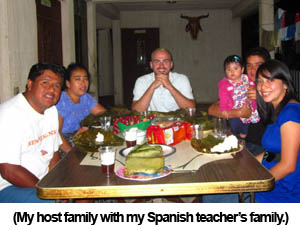 Edify worldwide – www.Edify.org
Edify worldwide – www.Edify.org - Archive: AaronRoth.net – Monthly Newsletters
My return to Guatemala last week was a homecoming to where the adventure began almost three years ago for me. I learned to speak Spanish in the school of San Pedro La Laguna near Lake Atitlan. This lake, considered one of the 10 most beautiful in the world, still holds the same enchanting beauty as it did when I arrived almost three years ago. It is where I first learned to value the experience of living with a Mayan family that spoke only Spanish and Tz’utujil. I learned that we valued the same things in life: family, relationships, and dinner around a common table.
As I’ve written in previous newsletters, with all the traveling I’ve done in the past three years, there are a set of behaviors and beliefs I’ve gotten used to. I consistently abide by the same rules for safety, pack my suitcase and backpack the same way, and continue to galvanize my stomach or local foods. But every once in a while I get caught off guard by a statement or a view of something so unusual, it makes me feel I just stepped off the plane from the US for the first time.
“After the girl fell and bumped her head, I remember a woman telling me not to worry; if it had been a boy, it would have been a problem, because a boy needs to take care of his brain for thinking and studying, with a girl it’s not so necessary. Girls don’t need to use their minds.”
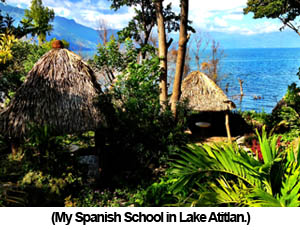 This statement was retold to me by a loan officer of a local Guatemalan Microlending Institution who was teaching rural women about the inequality of gender, and how they should value the female gender and should stand up for the rights of their little girls to attend school and seek educational and vocational opportunities. Inequality still exists in many parts of the world, not just in money or power, but in gender. Very often, when we think of poverty, it’s a description of inequality in economic class, education, or opportunity, but I’ve come to see poverty also as a lack of values or appreciation of life.
This statement was retold to me by a loan officer of a local Guatemalan Microlending Institution who was teaching rural women about the inequality of gender, and how they should value the female gender and should stand up for the rights of their little girls to attend school and seek educational and vocational opportunities. Inequality still exists in many parts of the world, not just in money or power, but in gender. Very often, when we think of poverty, it’s a description of inequality in economic class, education, or opportunity, but I’ve come to see poverty also as a lack of values or appreciation of life.
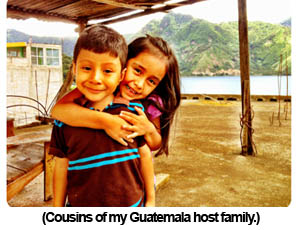 Now keep in mind, even in the tiny rural village where this training took place, culture is a behemoth that everyone can see, but very few can move on their own. It takes years to form itself, and sometimes it sets in like concrete, which means it takes years to reform or change. When any development or missional organization talks about transformation of any sort, be it economical, behavioral, or spiritual, they are entering into a long term process. I’m always hesitant to speak of rapid transformation in the work we do with microlending to schools, because when we try to improve the quality of education, and build on projects to schools, we’re talking about beginning a process for change with a diverse group of individuals who carry their own vision for the school.
Now keep in mind, even in the tiny rural village where this training took place, culture is a behemoth that everyone can see, but very few can move on their own. It takes years to form itself, and sometimes it sets in like concrete, which means it takes years to reform or change. When any development or missional organization talks about transformation of any sort, be it economical, behavioral, or spiritual, they are entering into a long term process. I’m always hesitant to speak of rapid transformation in the work we do with microlending to schools, because when we try to improve the quality of education, and build on projects to schools, we’re talking about beginning a process for change with a diverse group of individuals who carry their own vision for the school.
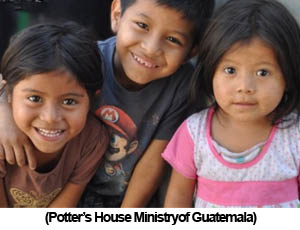 I think it’s better to say that as a development or missional organization from the States we are joining a team with a common goal. When we work together for long-term results, not just short-term projects that look good on powerpoints and photos, real transformation is possible. Real culture change is possible.
I think it’s better to say that as a development or missional organization from the States we are joining a team with a common goal. When we work together for long-term results, not just short-term projects that look good on powerpoints and photos, real transformation is possible. Real culture change is possible.
Last week, we met with an organization that is committed to long-term change. La Casa de Alfarero (The Potter’s House) is a local Guatemalan ministry that provides health, training, education, vocational, and spiritual empowerment to families that live in and around the enormous landfill of Guatemala. They told us that the community is made up of almost 3,000 people that work in the trash as “scavengers” looking for any material or item of value, and almost 9,000 people that work in and around the landfill. Families make at best $5 a day, with an average of $2-3 for a household.
As the director, Hector Rivas, explained to us, trying to reshape the culture of those who live in the trash is a difficult one. With their programs, clinic, and school, they consistently impart values to the students, by starting 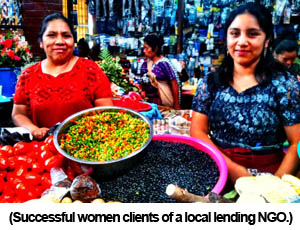 primarily with telling the students that they themselves are valuable. He elaborates:
primarily with telling the students that they themselves are valuable. He elaborates:
“We meet people all the time that say ‘Soy basura porque trabajo en la basura.’ (I’m garbage because I work in the garbage). We know that we can’t take these families and move them to another place because there would be no work or emploment there. What we try to do is simply take the garbage out of the person, knowing we can’t yet take the person out of the garbage.”
Culture change takes time, and Potter’s House has been working near the landfill for almost 20 years. Scavengers in the garbage dump know that the people from Potter’s House who come to serve them and educate their 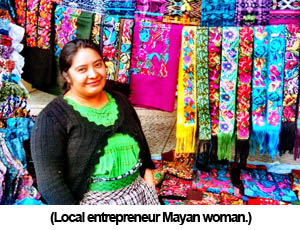 students in the school value them because they came to help, and because they stayed. They invested in the community, and the community trusts them.
students in the school value them because they came to help, and because they stayed. They invested in the community, and the community trusts them.
What we do in Edify is invest in local leadership and local communities. In every country I’ve been in over the past six months, and in every school I’ve walked into I usually say, “Our desire is to invest in this community, and you will work with people of your community, and we, the Americans, want to be part of the team.”
I believe that by truly investing in the local community, fully investing in the long-term change necessary to help change the mindset that all children, all boys and all girls, should be able to go to a good school and develop their talents as God gave them. This is a culture change of value. That we were all made with value, and that we all deserve to be valued, and to be valuable members to the communities where we live.
“Before I formed you in the womb I knew you, before you were born I set you apart.” (NIV: Jeremiah 1:5)
I pray that God would show you how you can help shape positive values in your community.
Blessings,
-Aaron
